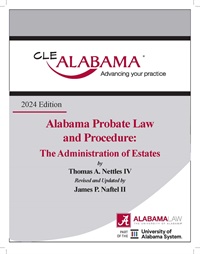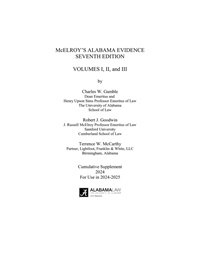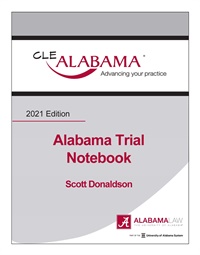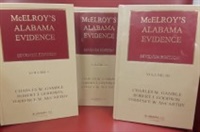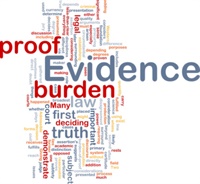50 Years Later: Revisiting Wyatt v. Stickney (Practitioner Panel)
Total Credits: 1.0 CLE, 1.0 Ethics
- Average Rating:
- 2
- Categories:
- Disability
- Faculty:
- Stanley Murphy | James Michael (MIKE) Comer | Jennifer Mathis
- Original Program Date:
- Mar 19, 2021
- License:
- Access for 90 day(s) after purchase.
Description
In 1970, the landmark Wyatt v. Stickney case emerged out of Bryce Hospital in Tuscaloosa, Alabama—establishing nationally influential minimum standards for the treatment of mentally ill and intellectually disabled individuals in institutional settings. This session will discuss how this case has influenced decades of national policy and explore its continued impact on disability law.
You must complete this course by 11:59 PM on December 31, 2023 in order to receive credit with the Alabama State Bar.
Handouts
| Wyatt decision.docx (19.4 KB) | 6 Pages | Available after Purchase |
| INSTRUCTIONS FOR COMPLETING SEMINAR AND RECEIVING CLE CREDIT2.docx (11.7 KB) | 1 Pages | Available after Purchase |
Faculty

Stanley Murphy Related Seminars and Products
Murphy & Murphy, LLC
Stan Murphy is a partner at the law firm of Murphy & Murphy, LLC, and an adjunct professor at the University of Alabama Law School. Much of his law practice is focused on securing the legal protections of persons with disabilities. Previously he served as Senior Counsel in the Office of Counsel for the University of Alabama System. Earlier he was special assistant to the Secretary of the United States Department of Health, Education, and Welfare (1975-1977) and assistant to the Vice-President of Student Affairs at the University of Alabama (1970-1975).
Stan is admitted to practice before the United States Supreme Court, the United States Court of Appeals for the 11th Circuit, the U.S. district courts in Alabama and the Middle District of Florida. He earned a BA from Haverford College, Haverford, Pennsylvania where he was president of the Students’ Association. He received his JD from the University of Alabama School of Law, where he was among the founders and served as the first editor-in-chief of the Law and Psychology Review.

James Michael (MIKE) Comer Related Seminars and Products
Patterson Comer Law Firm
Mike Comer is from Walker County, Alabama and graduated from the Alabama School of Law. In 1998 Mike was licensed to practice law in Alabama as well as the northern, middle, and southern districts of the United States and the 11th Court of Appeals.
Mike Comer took the legal field by storm, by being one of the youngest attorneys in Alabama to procure a $20 million verdict. Preparedness, determination, and integrity are only a few of the traits that Mike possesses that have yielded excellent returns for clients over the past several years. Mike's courtroom skills are unmatched with his ability to connect with the jury. This expertise has manifested itself in the form of receiving a number of million dollar settlements and verdicts for Patterson Comer clients.

Jennifer Mathis Related Seminars and Products
Bazelon Center for Mental Health Law
Jennifer Mathis is Deputy Legal Director and Director of Policy and Legal Advocacy of the Judge David L. Bazelon Center for Mental Health Law where she engages in litigation and policy advocacy to promote community integration of individuals with mental disabilities, other non-discrimination work under the ADA and Section 504, and the Medicaid rights of adults and children with disabilities. Ms. Mathis helped coordinate the amicus briefs filed in the Supreme Court in the case of Olmstead v. L.C. She also served on the team of disability community negotiators who worked with the business community to craft what became the ADA Amendments Act of 2008. Ms. Mathis left the Bazelon Center for one year to serve as special assistant to EEOC Commissioner Chai Feldblum in 2010-2011; in that role, she helped draft regulations implementing the ADAAA. Before joining the Bazelon Center, Ms. Mathis conducted litigation involving ADA, Section 504, the Fair Housing Act, and Title XIX claims with the Disabilities Law Project in Pittsburgh. She also practiced with a private law firm where she pursued litigation on a broad range of civil rights issues. Ms. Mathis holds an A.B. from Harvard University, an M.A. from New York University, and a J. D. from Georgetown University Law Center.


